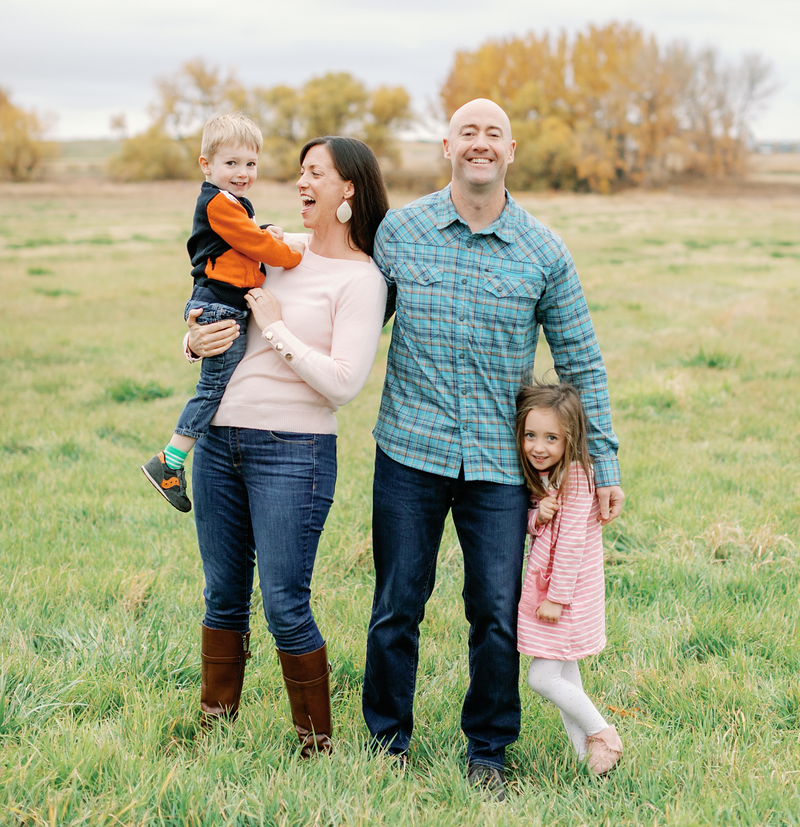Overcoming an early start to life – a founder’s story
The story of founder Katie Fitzgerald’s pre-term daughter
November 18, 2022
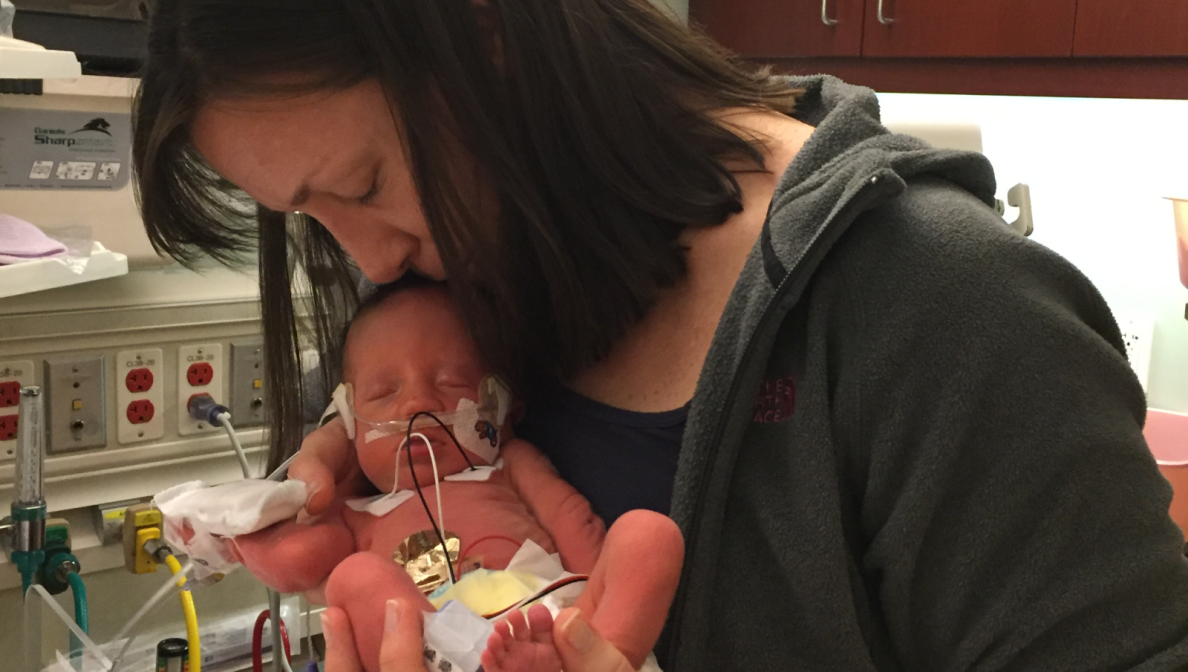
In honor of National Prematurity Awareness Month this November, Katie Fitzgerald, associate director, product marketing for JADA, shares her story. Her daughter Lucy entered the world seven weeks too early and spent the first part of her life in the neonatal intensive care unit (NICU) near their Colorado home.
Katie and Lucy’s story reminds us why our vision of a healthier every day for every woman matters.
Labor with Lucy started the way it does in movies – a gush onto my sister’s kitchen floor as my water broke spontaneously. I was 33 weeks pregnant.
There’d been no warning. My pregnancy had gone smoothly until then and I was in denial that things were about to take a negative turn. I even drove myself to the hospital!
At the hospital, it became clear I was going to have the baby. They gave me medication to help strengthen her lungs and I opted for an epidural to help me sleep. It all happened quickly – less than 8 hours later, on Feb.18, Lucy was born weighing 4 lbs., 4 oz.
They immediately put her on my chest for skin-to-skin bonding, but it was brief. Specialists quickly surrounded her. I didn’t fully appreciate what was happening, still in the haze of childbirth. I quickly realized the NICU team was there and all sorts of healthcare workers. The scene in the room intensified – fast.
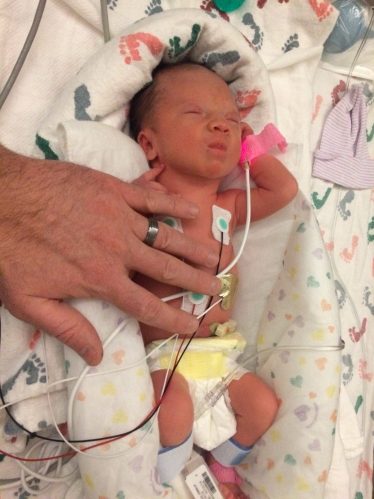
The first few hours they kept checking her oxygen, placing IVs, and hooking her up to monitors. Her breathing was especially significant because we live in Colorado – most babies born at elevation need oxygen when first born, but Lucy was breathing well. The doctors were really encouraged. They tell most families to plan for their pre-term baby to stay until about their original due date. With Lucy, it seemed she might do better than that.
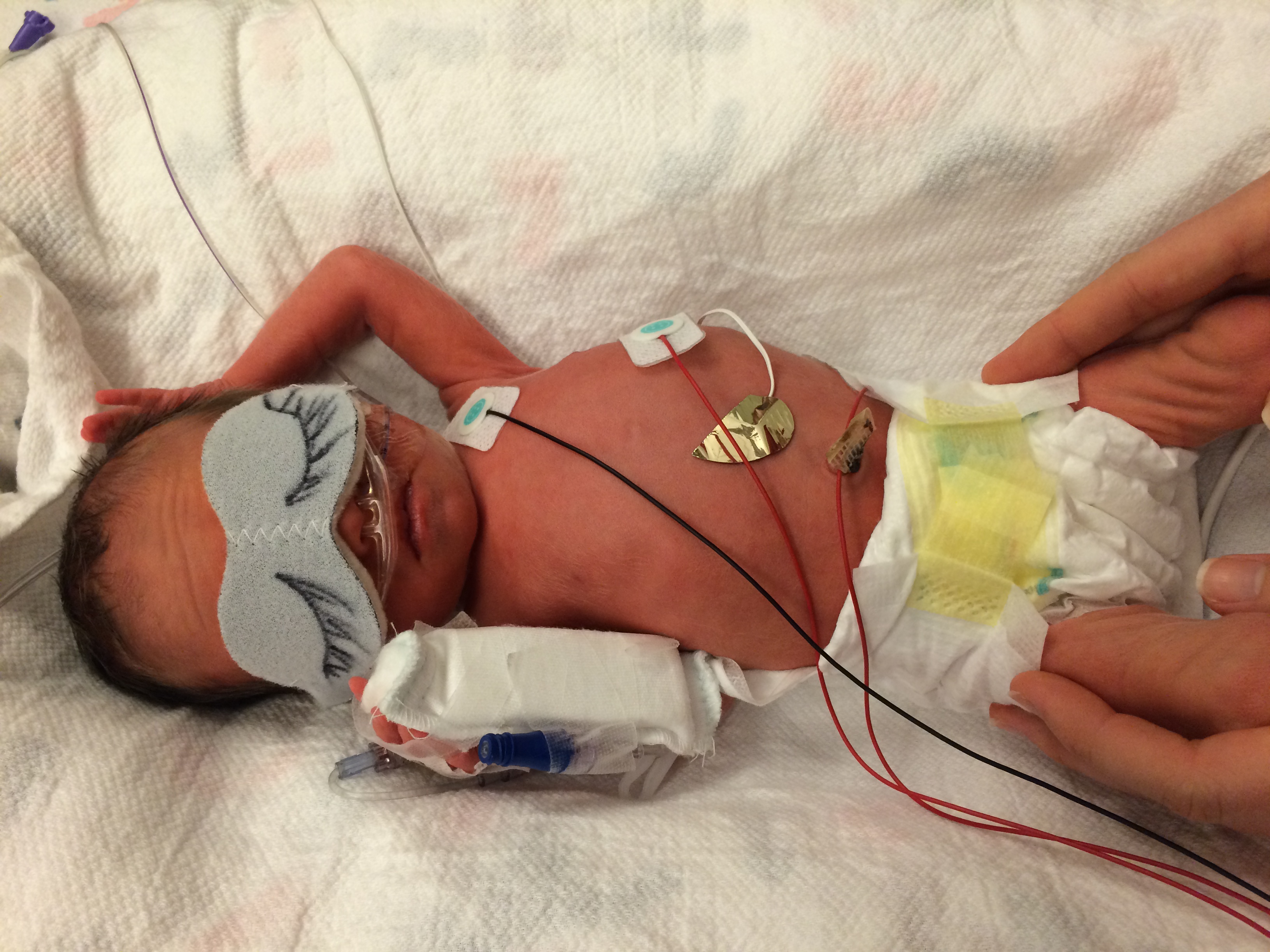
They also tell you to prepare for two steps forward and one step back. That’s when we learned about the ups-and-downs of the NICU. Shortly after we celebrated her breathing, she started to need oxygen. We became familiar with the NICU vernacular, plus the different alarms and bells and wires. Lucy struggled with apnea (forgetting to breathe) and bradycardia (heart rate below 80). We called them her “As and Bs.” Thankfully, she soon was doing better, and though she was tiny, she was healthy.
Our NICU stay was better than I expected. The nurses were fantastic and made an overwhelming situation much easier – we’re still close friends with some. We also were in the first wave of a new trend where we had our own private room connected to Lucy’s NICU room – we could go in from one side and the nurses could enter from the other. We never had to be far from her while I was in the hospital recovering and throughout her 8-week stay.
The NICU was a roller coaster of emotions. Still, we were fortunate in countless ways, much more so than many other preemie parents.
We learned Lucy’s routine quickly. Every three hours we’d check her temperature, change her diaper, and feed her. But that’s where Lucy’s struggles really started.
Once she was strong enough to breastfeed, it was difficult – she wasn’t eating for me. It felt like I wasn’t doing enough for my daughter. It was hard emotionally and mentally.
We supplemented with breastmilk and formula through a feeding tube, but she still wasn’t able to eat enough on her own. For weeks, we went back and forth, past her due date.
One night, we met with her care team and discussed transferring her to the bigger children’s hospital or setting her up with a gastronomy feeding tube that we would manage at home. It was so overwhelming.
Then my husband had an idea. He wondered if the three-hour routine wasn’t allowing Lucy to get hungry; which contributed to her not eating enough on her own. We asked to try feeding her only when she seemed she wanted to eat. They gave us 24 hours.
A day later, when it was time to weigh her, Lucy barely beat the threshold they’d set – but it was enough. There was a huge celebration. After a few more days of watching her, the staff began talking about sending her home.
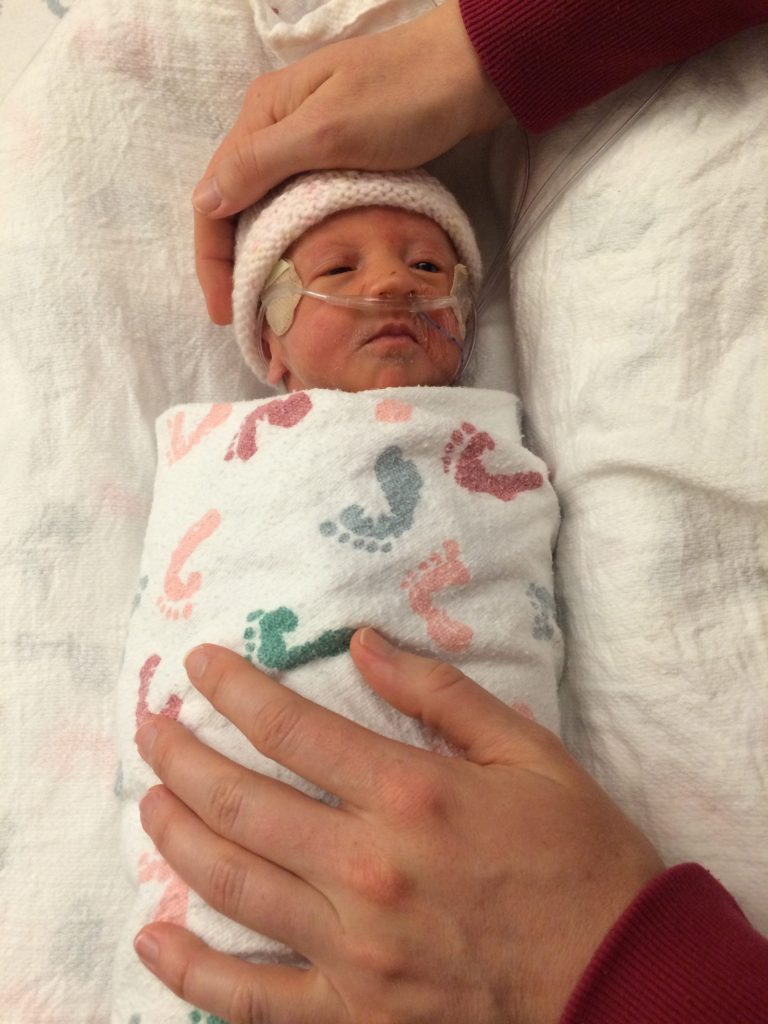
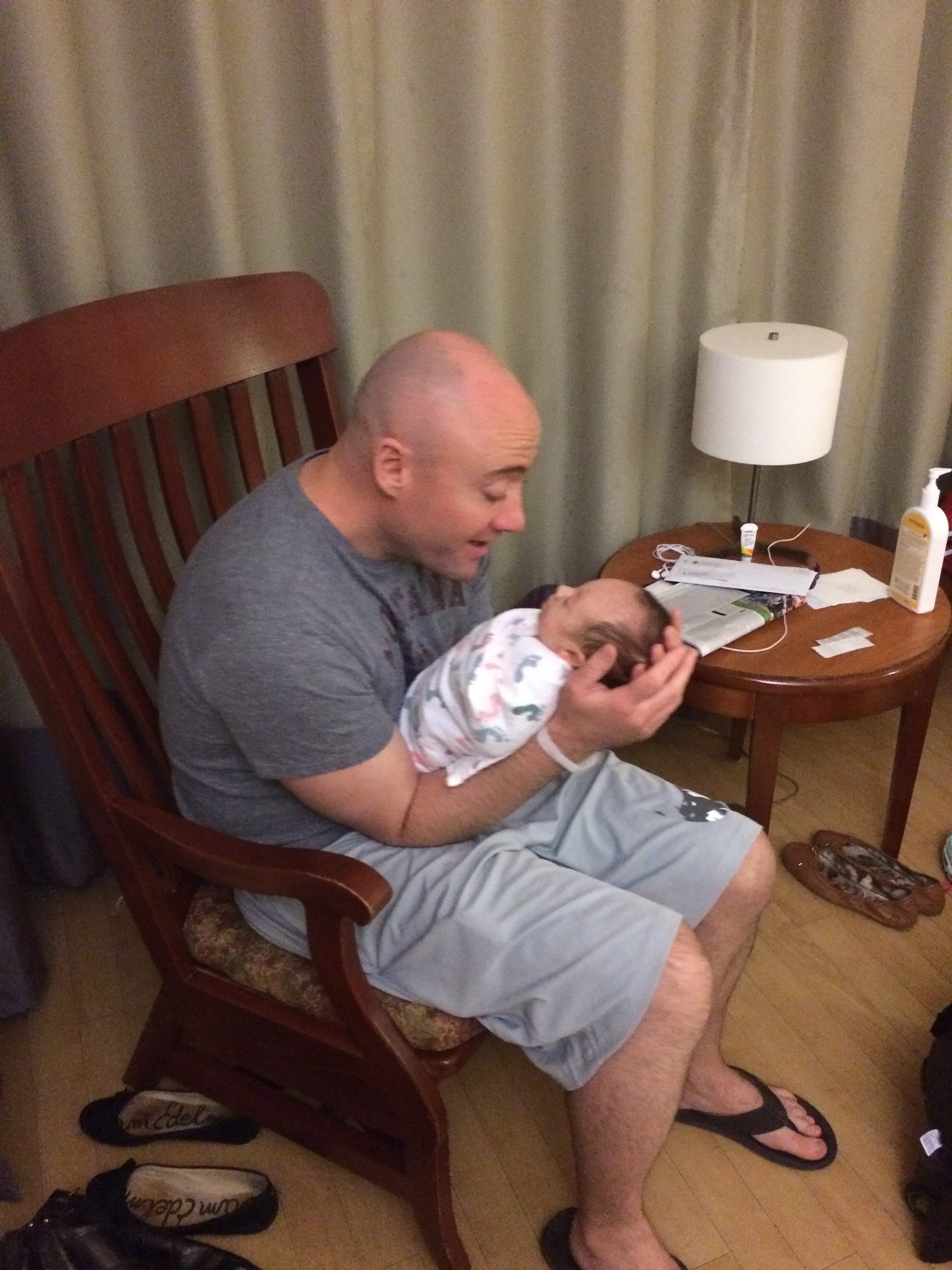
One of my favorite pictures is of Lucy getting a pep talk from her dad before her car seat test, making sure she would maintain her “As and Bs” for a trip home. It’s an hour-long test NICU babies do before they are discharged. In the picture, she’s all bundled up and ready to be with us. The next morning, we checked her out. It had been 56 nights.
The NICU was a roller coaster of emotions. Still, we were fortunate in countless ways, much more so than many other preemie parents. I think about that a lot, and it gives me a weird sense of guilt, like I didn’t go through the trauma of friends whose babies were born even earlier. Having a pre-term child brings a lot of different challenges and many different emotions.
Lucy is now a thriving six-year-old. She’s lean, but healthy – no signs she was a preemie. And I’m a proud Organon founder, focused on women’s health, which is under-resourced, under-invested, and under-researched. To be even a small part of making that better, whether for babies or moms, is amazing.
We lived through this really hard thing, and we came out better for it. Someday, as part of Organon, maybe I can help keep a family from eight weeks in the NICU.

